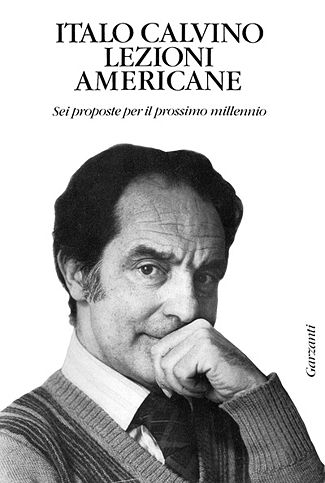ITALO (EE-tuh-loh)
Italo
Calvino: Italian journalist and author
Common clues: Author
Calvino; Writer Calvino; Novelist Calvino; “Cosmicomics”
author Calvino; “Mr. Palomar” writer Calvino
Crossword
puzzle frequency:
3 times a year
Frequency
in English language:
60437 / 86800
News: Imagining
Italo Calvino's Invisible Cities into existence
Video: The
Distance From the Moon – Italo Calvino
The satirist is prevented by repulsion from gaining a better knowledge of the world he is attracted to, yet he is forced by attraction to concern himself with the world that repels him. ~ Italo Calvino
Italo Calvino (15 October 1923 – 19 September 1985) was an Italian journalist and writer of short stories and novels. His best known works include the Our Ancestors trilogy (1952–1959), the Cosmicomics collection of short stories (1965), and the novels Invisible Cities (1972) and If on a winter's night a traveler (1979).
Lionised in Britain and the United States, he was the most-translated contemporary Italian writer at the time of his death, and a noted contender for the Nobel Prize for Literature.

In 1957, disillusioned by the 1956 Soviet invasion of Hungary, Calvino left the Italian Communist Party. In his letter of resignation published in L'Unità on 7 August, he explained the reason of his dissent (the violent suppression of the Hungarian uprising and the revelation of Joseph Stalin's crimes) while confirming his "confidence in the democratic perspectives" of world Communism. He withdrew from taking an active role in politics and never joined another party. Ostracized by the ICP party leader Palmiro Togliatti and his supporters on publication of Becalmed in the Antilles (La gran bonaccia delle Antille), a satirical allegory of the party’s immobilism, Calvino began writing The Baron in the Trees. Completed in three months and published in 1957, the fantasy is based on the "problem of the intellectual’s political commitment at a time of shattered illusions". He found new outlets for his periodic writings in the journals Città aperta and Tempo presente, the magazine Passato e presente, and the weekly Italia Domani. With Vittorini in 1959, he became co-editor of Il Menabò, a cultural journal devoted to literature in the modern industrial age, a position he held until 1966.
Despite severe restrictions in the US against foreigners holding communist views, Calvino was allowed to visit the United States, where he stayed six months from 1959 to 1960 (four of which he spent in New York), after an invitation by the Ford Foundation. Calvino was particularly impressed by the "New World": "Naturally I visited the South and also California, but I always felt a New Yorker. My city is New York." The letters he wrote to Einaudi describing this visit to the United States were first published as "American Diary 1959–1960" in Hermit in Paris in 2003.
In 1962 Calvino met Argentinian translator Esther Judith Singer ("Chichita") and married her in 1964 in Havana, during a trip in which he visited his birthplace and was introduced to Ernesto "Che" Guevara. On 15 October 1967, a few days after Guevara's death, Calvino wrote a tribute to him that was published in Cuba in 1968, and in Italy thirty years later. He and his wife settled in Rome in the via Monte Brianzo where their daughter, Giovanna, was born in 1965. Once again working for Einaudi, Calvino began publishing some of his "Cosmicomics" in Il Caffè, a literary magazine.
During the summer of 1985, Calvino prepared a series of lectures to be delivered at Harvard University in the fall. On 6 September, he was admitted to the ancient hospital of Santa Maria della Scala in Siena, where he died during the night between 18 and 19 September of a cerebral hemorrhage. His lecture notes were published posthumously in Italian in 1988 and in English as Six Memos for the Next Millennium in 1993.
This article is licensed under the GNU Free Documentation License. It uses material from the Wikipedia article "Italo_Calvino".
NA
|
|